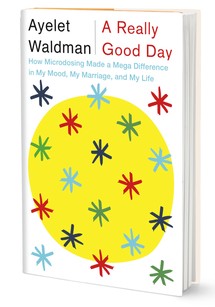Books to Read over a Long Winter Weekend
There's no better way to celebrate a day off than curling up
with one of these delectable new novels.

19 of 19
A Really Good Day: How Microdosing Made a Mega Difference in My Mood, My Marriage, and My Life
By Ayelet Waldman
256 pages;
Knopf
Plagued by dramatic ups and downs—bouts of irrationality and irritability that often played out in unprovoked family arguments and social media overshares—novelist Ayelet Waldman decided to try something extreme: LSD. Her weeks-long experiment, documented with wit and humility in A Really Good Day: How Microdosing Made a Mega Difference in My Mood, My Marriage, and My Life, delivers a mind-bending read. Waldman stumbled on the idea of treating her symptoms with tiny doses of the drug in James Fadiman's 2011 book, The Psychedelic Explorer's Guide. Fadiman's research found that some who dropped "sub-perceptual" amounts of acid—not enough to induce hallucinations, but apparently enough to affect brain chemistry—soon experienced an unfamiliar sense of well-being. It's tempting to judge: Why would a mother of four submit to a treatment that has unknowable side effects and could land her in jail? But Waldman ultimately concludes that while microdosing seems to have a palliative effect and her quest produced valuable insights, its benefits don't outweigh the possible repercussions. All in all, her quirky introspection and pharmaceutical sleuthing make this unexpected chronicle worth the trip.
— Leigh Haber
Published 01/21/2017


